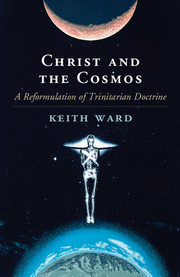Book contents
- Frontmatter
- Contents
- Preface
- Acknowledgements
- PART I THE THREEFOLD NATURE OF THE DIVINE BEING
- PART II THE BIBLICAL SOURCES OF TRINITARIAN THOUGHT
- PART III THE TRINITY, IMMANENT AND ECONOMIC
- 11 Why Three?
- 12 The Trinity and Revelation
- 13 Hegel and Modern Theology
- 14 The Immanent Trinity
- 15 The Identity of the Immanent and the Economic Trinity
- 16 Hegel Again
- 17 What Creation Adds to the Trinity
- 18 The Epistemic Priority of the Economic Trinity
- 19 The Trinity and Naive Realism
- 20 The Trinity and the Cosmos
- 21 Revelation and the Immanent Trinity
- PART IV THE SOCIAL TRINITY
- PART V THE COSMIC TRINITY
- Bibliography
- Subject Index
- Name Index
13 - Hegel and Modern Theology
from PART III - THE TRINITY, IMMANENT AND ECONOMIC
Published online by Cambridge University Press: 05 September 2015
- Frontmatter
- Contents
- Preface
- Acknowledgements
- PART I THE THREEFOLD NATURE OF THE DIVINE BEING
- PART II THE BIBLICAL SOURCES OF TRINITARIAN THOUGHT
- PART III THE TRINITY, IMMANENT AND ECONOMIC
- 11 Why Three?
- 12 The Trinity and Revelation
- 13 Hegel and Modern Theology
- 14 The Immanent Trinity
- 15 The Identity of the Immanent and the Economic Trinity
- 16 Hegel Again
- 17 What Creation Adds to the Trinity
- 18 The Epistemic Priority of the Economic Trinity
- 19 The Trinity and Naive Realism
- 20 The Trinity and the Cosmos
- 21 Revelation and the Immanent Trinity
- PART IV THE SOCIAL TRINITY
- PART V THE COSMIC TRINITY
- Bibliography
- Subject Index
- Name Index
Summary
There is a certain irony in the fact that, though Barth constantly decries the influence of philosophers on faith, the terms in which Barth spells out his ‘event’ view of revelation are strangely reminiscent of Hegel, the author of one of the most ambitious philosophical world views there has ever been.
When we read that ‘God the revealer is identical with His act in revelation and also identical with its effect’ (Barth, 1936, p. 296), it sounds as if God speaks primarily to himself and that when God speaks to us, only God, existing in us, understands what he says. Humans become the vehicles of an internal divine soliloquy whereby God expresses himself fully (in human form) and understands himself truly, by interpreting that self-expression correctly from within human minds. Humanity (true humanity, in Jesus) becomes the means of God expressing and knowing himself fully. That is an almost exact statement of Hegel's thesis that Absolute Spirit (Geist) expresses and objectifies itself in human history and comes to realise and know itself fully through incorporating that historically achieved knowledge into the eternal divine being.
Such an interpretation, made explicit, would no doubt horrify Barth, as it makes humanity necessary to God's self-manifestation and self-knowledge. Yet Barth does hold that the Son is eternally decreed to become incarnate, and to include humanity in God. So even though this eternal decree is, Barth says, freely made, it does seem to make humanity in some sense necessary to what God essentially is.
My point is not that it is a terrible thing to be Hegelian but that perhaps a specific philosophical system is more important to Barth's theology than he acknowledged. I would want to distinguish God more clearly from His act of revelation, which takes place in the created world and so cannot be part of the divine essence. And I also wish to distinguish more clearly the revelatory act (the life of Jesus) from its reception by humans and distinguish that reception, or its many diverse human receptions, from the self-understanding of God or from the self-understanding of the Spirit as it responds to God from within human lives.
- Type
- Chapter
- Information
- Christ and the CosmosA Reformulation of Trinitarian Doctrine, pp. 98 - 101Publisher: Cambridge University PressPrint publication year: 2015



